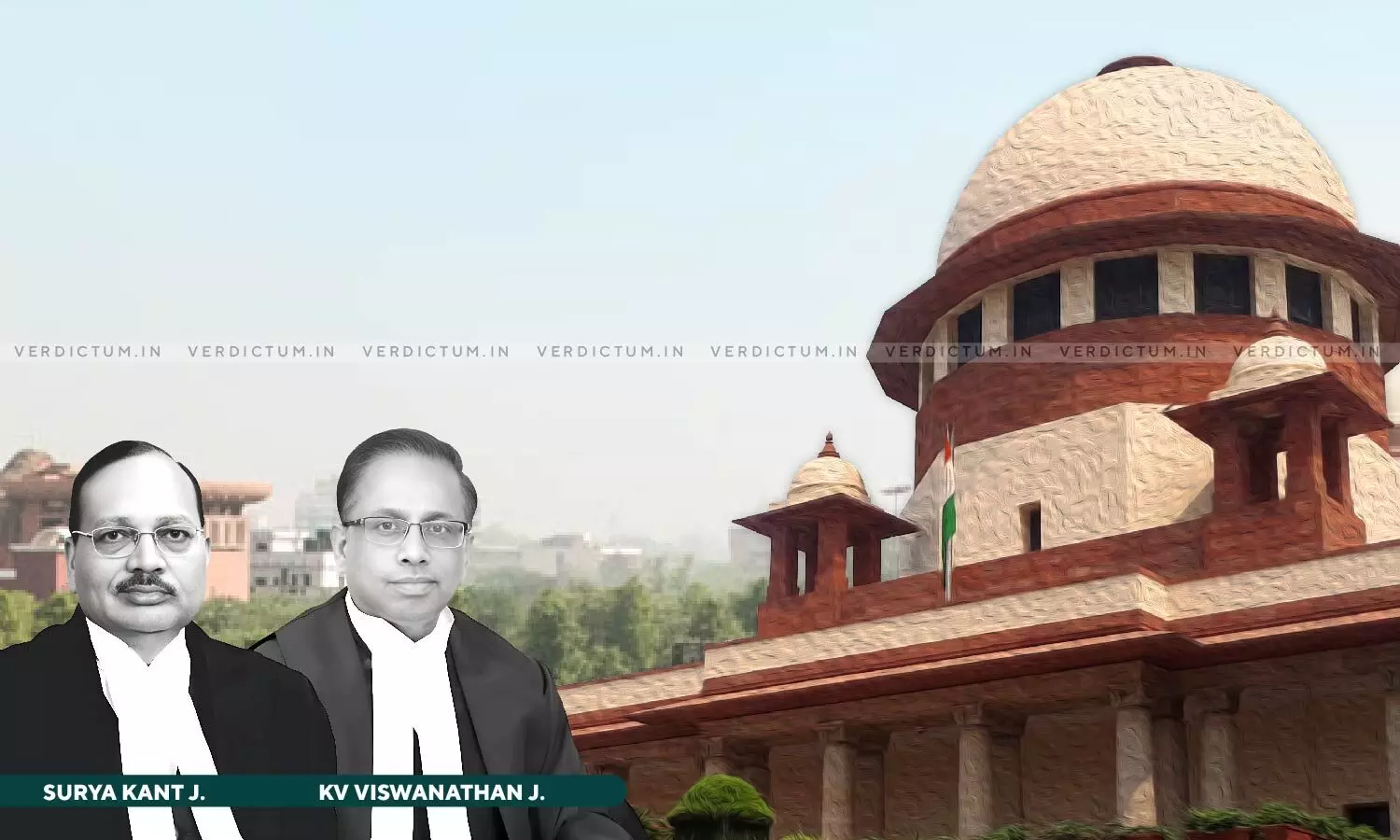
"Too Far Fetched": SC Rejects Contention That Commitments In Manifesto By Political Parties Which Leads To Financial Help To Public At Large Is Corrupt Practice
 |
|The Supreme Court recently disagreed with a contention that any commitment made by a political party in its manifesto, which leads to direct or indirect financial help to the public, will also amount to corrupt practice.
The court, however, kept the question of law open to be decided in an appropriate case.
The Bench of Justice Surya Kant and Justice KV Viswanathan observed, “The contention of the learned counsel that the commitments by a political party in its manifesto, which eventually lead to direct or indirect financial help to the public at large, will also amount to corrupt practice by a candidate of that party, is too far-fetched and cannot be accepted. In any case, in the facts and circumstances of these cases, we need not to go into such question elaborately. The appeals are, accordingly, dismissed…However, the question of law is kept open to be decided in an appropriate case.”
AOR Balaji Srinivasan appeared for the Appellant.
An appeal was filed by a voter in Chamarajpet Assembly Constituency who has challenged the order passed by the Karnataka High Court which dismissed his election petition alleging that the promises made by the Indian National Congress (INC) party in its manifesto amounted to corrupt practices.
The High Court had observed, “A perusal of the aforementioned Section discloses that, a practice shall be considered as a corrupt practice when the same is done by a candidate or his agent or by any other person with the consent of the candidate or his agent, and not otherwise. A declaration by a party as to the policy that they intend to bring about cannot be considered as a corrupt practice. Whether the said policy is sound or not and whether it has the effect of dolling out freebies or appeasing a section of the society to the detriment of others, is a matter to be debated and it is for the voters to enlighten themselves about the viability of the said promises and vote for a particular party. The same cannot be considered as a corrupt practice for the purpose of Section 123 of the RP Act.”
The ground of challenge in the Election Petition before the High Court was that, the promises made by the INC party in its manifesto, like (i) 'Gruha Jyothi'- 200 Units of Free Electricity to all the houses; (ii) 'Gruha Lakshmi'- Rs.2,000/- every month to each and every women head of the family; (iii) 'Anna Bhagya' - 10 kilograms of food grain every person in BPL family per month; (iv) 'Yuva Nidhi'-Rs.3000/- per month for two years to unemployed graduates and Rs.1,500/- per month for two years to unemployed diploma holders; (v) 'Shakthi'-free travel to all women throughout the state in regular KSRTC/BMTC Buses, amounts to corrupt practices and therefore, the election of the respondent, who was a winning candidate from the INC, be set aside.
The High Court had also held, “In the light of the aforementioned observations made by the Hon’ble Apex Court, the five guarantees of the Indian National Congress have to be considered as social welfare policies. Whether they are financially viable or not is altogether a different aspect. It is for the other parties to show as to how implementation of the said schemes amounts to bankruptcy of the State Treasury and it can only lead to malgovernance of the State. It is possible that they can be termed as wrong policies under the given facts and circumstances of the case, but cannot be termed as corrupt practices.”
Accordingly, the Supreme Court kept the question of law open, but dismissed the appeal.
Cause Title: Shashanka J. Sreedhara v. B.Z. Zameer Ahmed Khan
Appearances:
Appellant: AOR Balaji Srinivasan, Advocates Vishwaditya Sharma and Lakshmi Rao.